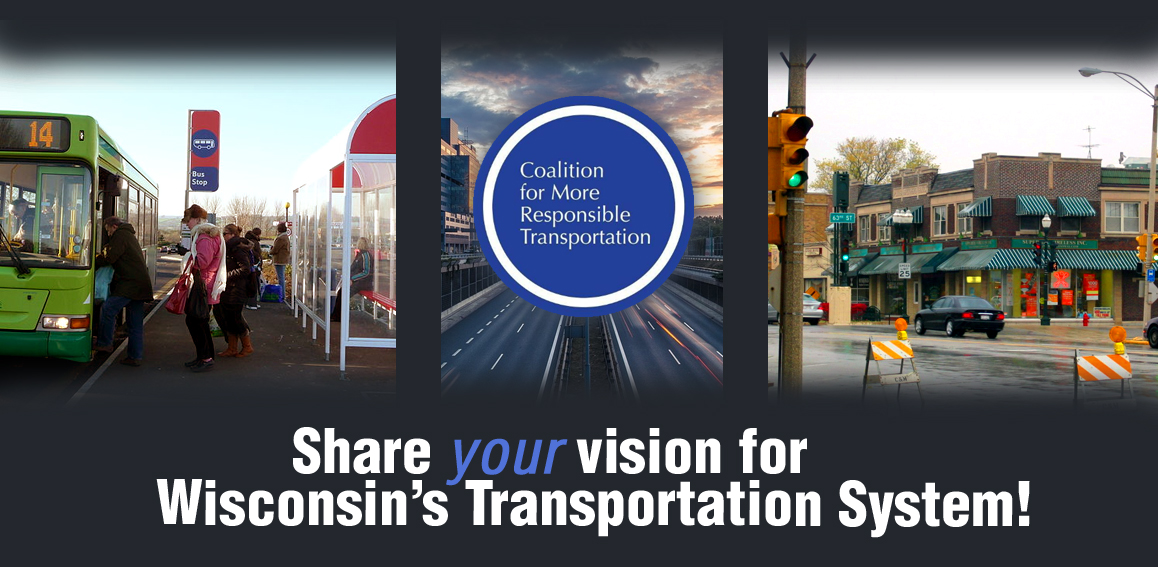On April 6, the Joint Finance Committee (JFC) opted to start from scratch on the state transportation budget, rather than using the budget that Governor Walker proposed. The state transportation budget provides funding for highway expansions and rehabilitation, local road repairs and maintenance, specialized transportation like paratransit or shared ride taxis for people with disabilities, transit, and bike and pedestrian infrastructure.
Amidst all of the possible changes in the transportation budget, there are many things we know will not change.
While many legislators have expressed support for raising the gas tax to increase overall revenue in the budget, Governor Walker has stated that he will veto a gas tax from the transportation budget. This means we must operate under the assumption that revenue will not be increasing.
A recent audit of Wisconsin’s Department of Transportation (DOT) revealed that the cost of major highway projects was frequently double the cost estimates, demonstrating irresponsible and wasteful spending on highways.
The total size of the transportation budget, approximately $3 billion annually, is likely to remain the same.
There is a growing number of unmet transportation needs in Wisconsin: from counties with senior populations doubling in size to communities whose local roads and bridges are crumbling to carless populations who are unable to reach work and other opportunities.
With these constraints in mind, the striking of Governor Walker’s budget creates a powerful opportunity for Wisconsin residents to share their thoughts on which areas of transportation should be prioritized to best meet their needs.
Whether it is more transit to better access healthcare or work, better bike and pedestrian infrastructure to help decrease your carbon footprint, more specialized funding to help your neighbors with disabilities or increased support to repair the crumbling road in your neighborhood, the priorities you care about should be shared with decision-makers!
